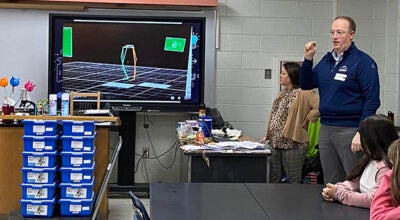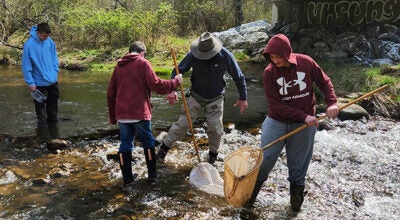We need equity in care and education
Published 11:18 am Thursday, September 22, 2022
|
Getting your Trinity Audio player ready...
|
By Katherine Hudson
100 Days in Appalachia
In March of 2020, after years with a therapist, I was diagnosed with Obsessive Compulsive Disorder. While I was at a loss for words and confused by the diagnosis, everyone I asked could see it.
Ever since I was young, I would become absolutely consumed by subjects that seemed odd to the rest of my peers. I couldn’t stand to be around people when they ate or drank because the sound was tortuous. Whenever I ate skittles or M&Ms, I had to eat all of the same color before moving on to the next color.
Everything had to be done in a very exact way every time.
But what I learned was that all of my behaviors that I had just passed off as “particular” were actually a serious disorder. My religious obsessions and ego dystonic intrusive thoughts that made me feel like a monster were simply symptoms of my illness.
I received my diagnosis, feeling overwhelmed, and walked out of my appointment – nine days before my 16th birthday – to my grandparents who informed me that school had been cancelled Friday. It was supposed to be our last day before Spring Break. I cried much of the way home.
COVID, however, has exacerbated some of my symptoms. While some students have thrived with remote learning, including some neurodivergent students, for others, the past nearly two years has been a continuation of existing in school systems that don’t recognize our needs. While I am in person for my senior year, I am unable to access certain accommodations because it is considered “too late” in my schooling to do so. When I was doing virtual school, teachers couldn’t see how hard I was trying to do well and how an “easy” AP US History assignment took me a whole day to complete because I could not sit and focus on the virtual textbook we were given. I wasn’t alone: Much of education is not designed with neurodivergent students in mind anyway, and the pandemic exacerbated gaps in needs.
Budget cuts to education have impacted how many – if any – school counselors, social workers and therapists a school can retain. Even in my home state, where the governor proposed a $250 “trust fund” for student mental health, reporting from Chalkbeat said “proposed funding does nothing toward moving quickly to hire more counselors, social workers, psychologists and nurses for Tennessee schools, where provider-to-student ratios fall far short of national recommendations.” Even for schools with these resources, too many of them are not inclusive, supportive and responsive to a student’s actual needs.
The lack of internet access in rural areas to consistent, stable internet has only made these challenges greater during the pandemic. Many rural students who may have had the devices to participate in virtual learning were still unable to access materials due to the quality of internet they did, or in some cases did not, have access to at home. These students have to sit outside of fast food restaurants and libraries to attempt to access their wifi so they can learn and not be penalized for factors beyond their control, forcing them out of the routines and environments that make them comfortable.
In Appalachian states, especially where medical care is hard to access for everyone, the system of support for neurodivergent students is especially oppressive. It is necessary for us to work to create more equitable systems that make all forms of care and education more accessible.
Being diagnosed during the pandemic underscored how critical it is that our schools prioritize listening to neurodivergent students, who have different needs and are not a monolith, center resources that are accessible online or in-person, and budget for therapists and psychologists who serve and support neurodivergent students. During the pandemic, schools proved they could do things in ways they hadn’t before. It’s past time to prioritize neurodivergent students.



